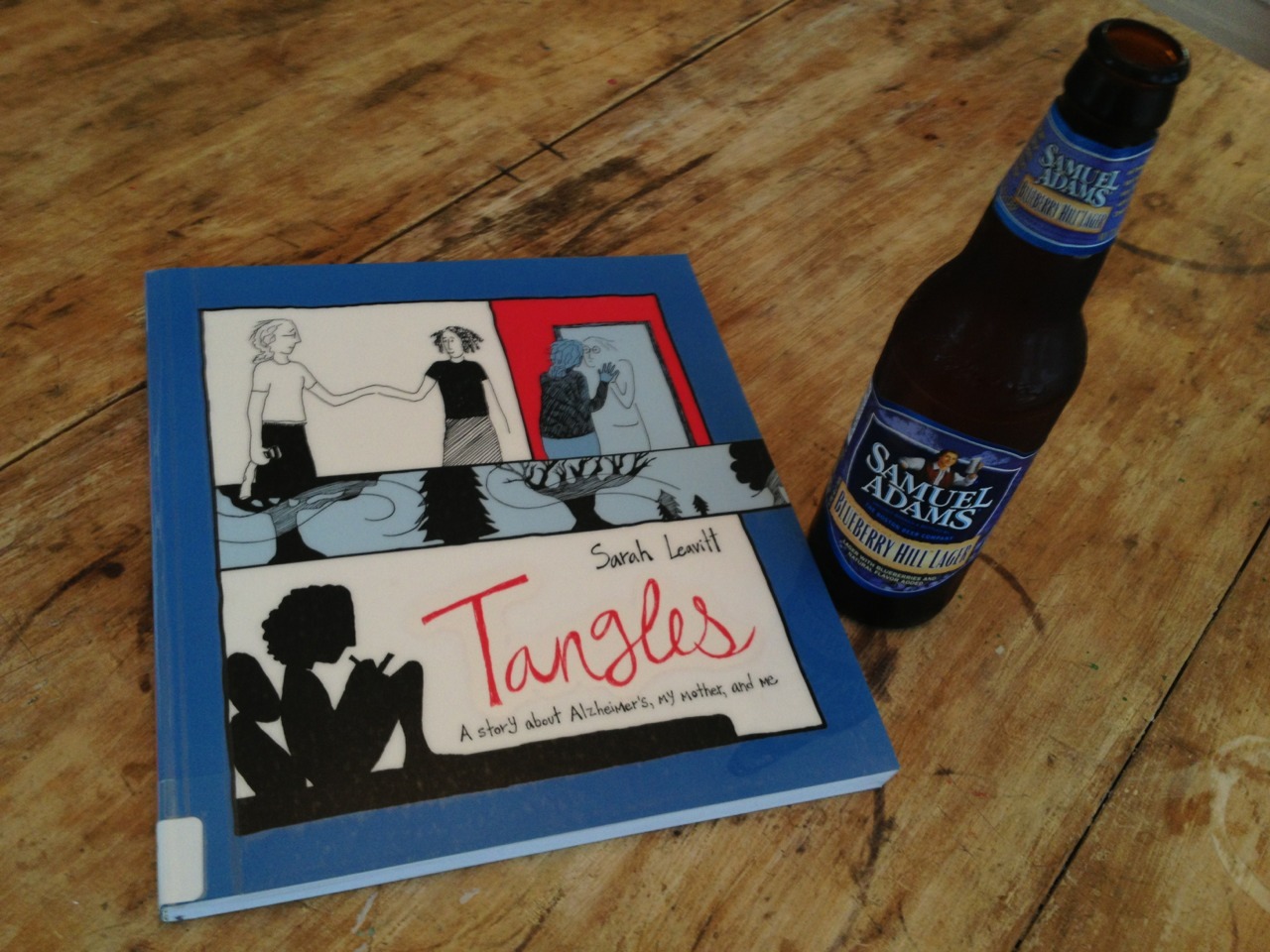Dotter of Her Father's Eyes is a book unlike any other I've read, a combined graphic biography (of
Lucia Joyce, daughter of
James Joyce) and autobiography (of the graphic novel's writer,
Mary M. Talbot, daughter of Joyce scholar
James S. Atherton
and a respected academic in her own right). Talbot had a pretty big
"in" in terms of an artist for her first graphic novel, seeing as her
husband is the legendary
Bryan Talbot, the award-winning creator of many comics and graphic novels, from the groundbreaking
The Adventures of Luther Arkwright to heartbreaking
The Tale of One Bad Rat to the genre-busting
Alice in Sunderland and more.
Given
that I've long been a fan of Bryan Talbot's work and studied (and
enjoyed!) a fair bit of Joyce in my undergraduate and graduate student
days, I was prepared to love this book. Sadly, I only liked it well enough - usually that's fine, but I had such high hopes, given its subject matter and pedigree. Mary is a fine writer, without question, and Bryan's artwork is top-notch as ever (although this is not the bravura performance he gave in
Sunderland),
but I just didn't feel that these two stories really needed to be told
together, or that they benefited much from their joining. It's true that
there are obvious linkages between the two (Joyce, most obviously, plus
enigmatic fathers), but those links don't really add up to much in the
telling, apart from those basic means of comparison.
Lucia's
story is heartbreaking, to be sure. A talented dancer, she found her
life choices always constrained and compromised by her parents' constant
moving from one country to another, even after Lucia reached adulthood.
Her eventual committal to a mental institution in 1932 (her first of
what became many stays) is as terrible as it is incomprehensible: After
one of many rows, Lucia throws a chair at her mother, and "Her brother
made a snap decision. He had her committed" (82). We're not given any
hint previously that anyone in her family thought she had mental issue:
She fights with her parents and chafes at their control, yes, but who
doesn't, really? In this telling, this "snap decision" signals the end
of Lucia's active life - the book ends less than ten pages later. It's a
tragedy, without question, but an incomprehensible one here. Surely
there has to be more to the story than a simple "snap decision" by her
brother.
Mary's own story, growing up the only daughter
in a postwar British household, is engaging, if sad: Eager to please
but also intelligent and headstrong, Mary constantly runs afoul of her
father and his snap-temper. Perhaps the book's most powerful and damning
observation appears on page 30: "Claims about men being unable to
express emotion irritate me to no end. My father did anger very well."
The love story between Mary and Bryan charms though suggestion; there's
enough tensions here to sustain a much longer, more detailed narrative.
Visually,
the book is divided into three portions: The present-day frame story,
in clearly inked full color panels; Lucia's story, in borderless
blue-grey; and Mary's story, borderless and primarily in sepia. The
borderless panels throughout both help to emphasize the flashback nature
of the narrative and allow for some beautifully blended page layouts.
In Mary's story, the artwork is the least polished, with preliminary
pencil lines and paste-up markings visible. I'm guessing this is somehow
to make that section feel more "authentic," perhaps, as it is the
author's own memories? I don't know - it doesn't look incomplete,
exactly, but it is rougher... maybe to mirror Mary's own pain at
"becoming" an adult?
The pages also show evidence that
it was a couple who created the book. There are several places where
Mary inserts a footnote about something that Bryan got "wrong" (the
frilly apron that her mother never would have worn, the favorite
children's book of Bryan's that he "snuck " into a montage of her
favorite children's books), and a place or two where we see "dueling
footnotes" from both author and artist. It's a cute personal touch, but
it creates a bit of tension when it comes to how the book presents
history: If there are factual errors (such as they are) in the Mary
sections, might the same be true in the Lucia sections? If the book were
Mary's (and, to a lesser extent, Bryan's) story alone, these moments
would seem utterly good-natured and fun; but they introduce questions of
authenticity that seem strange in a book that's based as much on
research as it is on memory.
Still and all, I'm glad I read
Dotter of Her Father's Eyes.
It's an enjoyable if at times painful set of true tales, of interest to
readers of biography and history and literature. I imagine that, seeing as how
it was awarded the Costa prize for biography, it will serve to introduce non-comics readers to the graphic novel format, which is a good thing, and I'm looking forward to what both Mary and Bryan have coming next.
Dotter of Her Father's Eyes
by Mary M. Talbot and Bryan Talbot
Dark Horse Books, 2012
ISBN-10: 1595828508
ISBN-13: 978-1595828507
94 pages, $14.99



